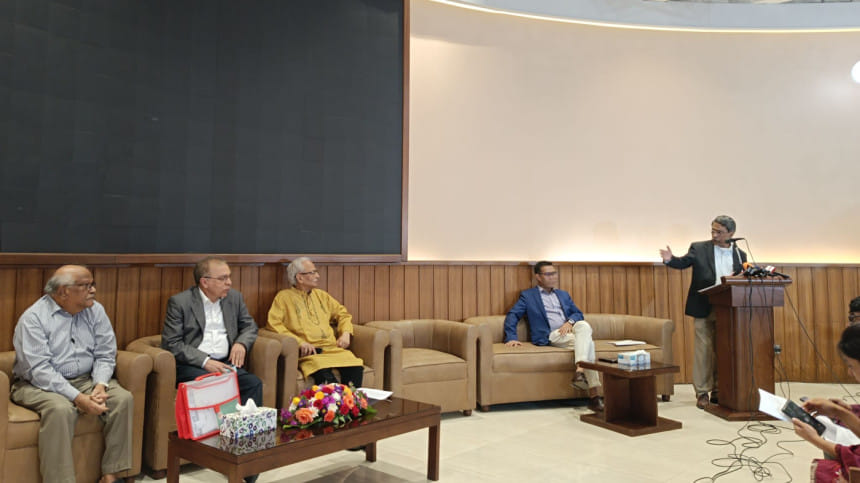Consensus Commission: It’s prepping for talks with parties

The National Consensus Commission is preparing to hold discussions with political parties to quickly reach an agreement on formulating a "National Charter".
Its Vice-President Prof Ali Riaz revealed this at a press conference at the LD Hall of the parliament yesterday.
Responding to a question, he said constitutional amendments are possible through ordinances as it has been done in the past.
Prof Riaz said the commission has sought opinions from 34 political parties and alliances on 166 important reform recommendations.
The commission expects to receive the responses by March 13. Once the parties submit their opinions, talks will begin, even though specific dates have not yet been set.
Prof Riaz urged political parties and alliances to provide their opinions as quickly as possible.
"The next steps in this process depend on the political parties. We want to start the discussions quickly…"
Commission members Badiul Alam Majumdar, Iftekharuzzaman, Abdul Muyeed Chowdhury, Safar Raj Hossain, Emdadul Haque, and Chief Adviser's Special Assistant (Consensus) Monir Haider were present at the press conference.
The six reform commissions, formed in October last year, submitted their proposals to the government on February 8.
The consensus commission is now trying to build consensus on the reform proposals.
Prof Riaz said key recommendations of five commissions have been arranged in a structured format. The 166 structured proposals were sent to the political parties and alliances on March 6, he added.
The proposals of the Police Reform Commission were not included in this framework, as that commission believes their suggestions can be implemented through administrative measures.
Among them, 70 proposals pertain to constitutional reforms, 27 to electoral reforms, 23 to judicial reforms, 26 to public administration reforms, and 20 to anti-corruption measures.
At the press briefing, Prof Riaz said feedback has been sought on two aspects of each proposal.
The first is whether the party concerned agrees with the proposal, with three response options: "Agree", "Disagree", and "Partially Agree".
The second is about the timeline and implementation method, which has six options for response -- "before the election through an ordinance", "before the election through a referendum", "during the election through a referendum", "through a Constituent Assembly", "after the election through constitutional amendments", and "through a parliament elected as both a Constituent Assembly and a Legislature".
Besides, a section for comments has been provided alongside each proposal.
"We hope that political parties and alliances will submit their feedback by March 13. If any questions arise or explanations are needed in the meantime, the commission is always ready to answer and discuss them," Prof Riaz said.
In addition to political parties, arrangements will soon be made through a website to collect public opinion on key proposals, he added.

 For all latest news, follow The Daily Star's Google News channel.
For all latest news, follow The Daily Star's Google News channel. 




Comments